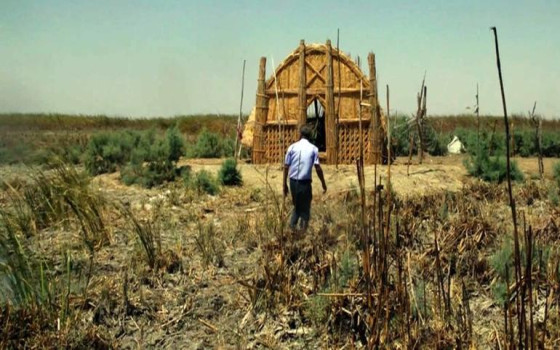An unprecedented crisis... Iraq's water reserves are at their lowest levels in eight decades

- Europe and Arabs
- Monday , 26 May 2025 9:4 AM GMT
Baghdad: Europe and the Arabs
Iraq is facing an unprecedented crisis, with its water reserves reaching their lowest levels in eight decades, amid a dry winter and a sharp decline in the flow of the Tigris and Euphrates rivers, according to a Ministry of Water Resources official.
Authorities attribute this sharp decline to climatic factors, in addition to the impact of dams built by Turkey and Iran at the headwaters of the two rivers, which for decades have been Iraq's lifeline.
Ministry spokesman Khaled Shamal stated that "the summer season should begin with at least 18 billion cubic meters of water, but the current availability does not exceed 10 billion cubic meters."
He added, "Last year, the water reserve level was double the current amount," noting that Iraq "has not witnessed such a decline in reserves in 80 years," and that the main reason is the significant decline in the flow of the two rivers. Shamal explained that the lack of rainfall this winter and the decrease in the amount of water resulting from melting snow have exacerbated the crisis in a country considered by the United Nations to be among the five countries in the world most vulnerable to the effects of climate change.
The spokesman pointed out in his remarks yesterday, Sunday, that the country's agricultural policy relies closely on water resources, and this year aims to preserve more than 1.5 million Iraqi dunams (about 375,000 hectares) of green and cultivated land.
According to a report by the Brussels-based Euronews website, water is one of the most prominent challenges facing Iraq, a country of approximately 46 million people that suffers from a stifling environmental crisis due to climate change, rising temperatures, and declining rainfall.
Iraq currently receives less than 40 percent of its water share from the Tigris and Euphrates rivers, according to Shamal, leading to disastrous consequences for the agricultural sector. A large number of farmers have been forced to abandon their lands, while authorities have reduced agricultural activities to ensure a minimum level of drinking water for the population. The water issue has become a recurring bone of contention between Iraq and Turkey, which has called on Baghdad to improve its management of water resources. This is despite the two countries signing a ten-year agreement in 2024, which focuses primarily on investing in projects aimed at ensuring more efficient and sustainable water resource management.














No Comments Found